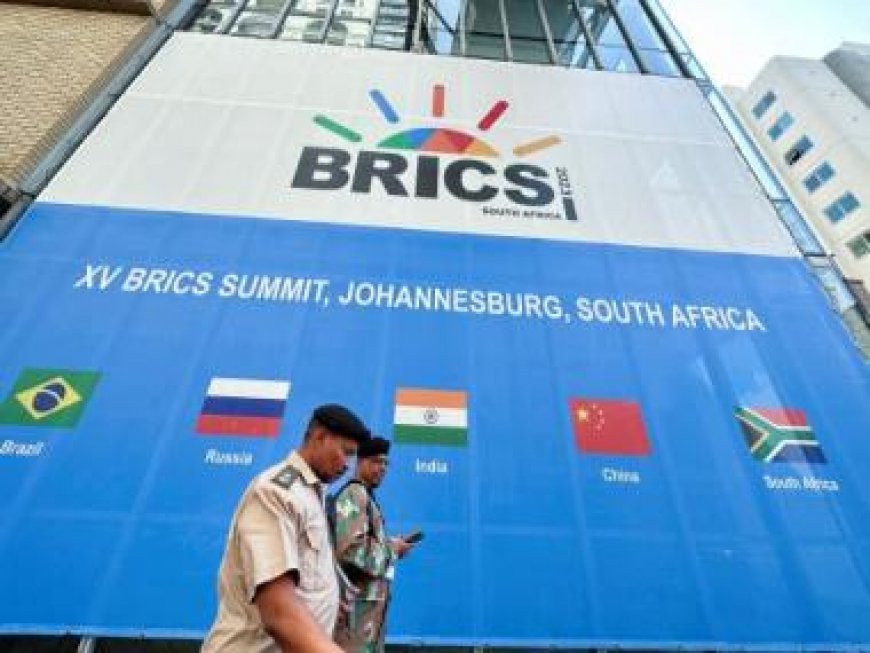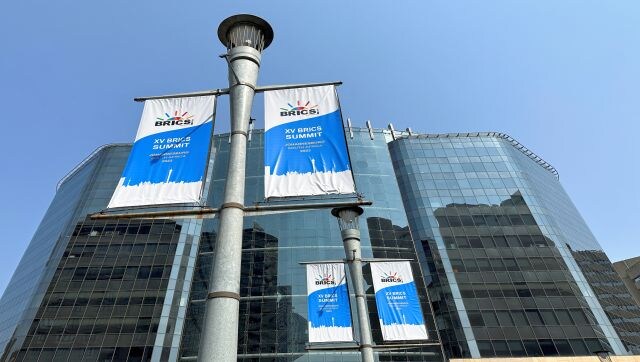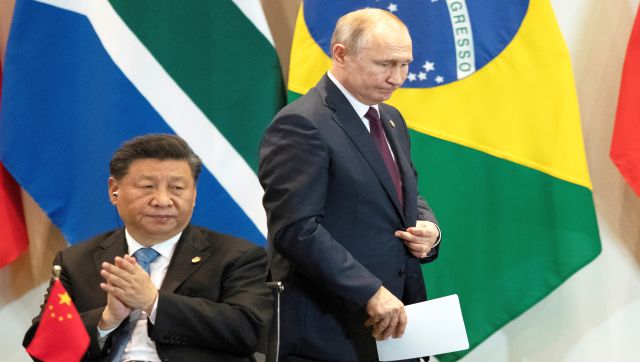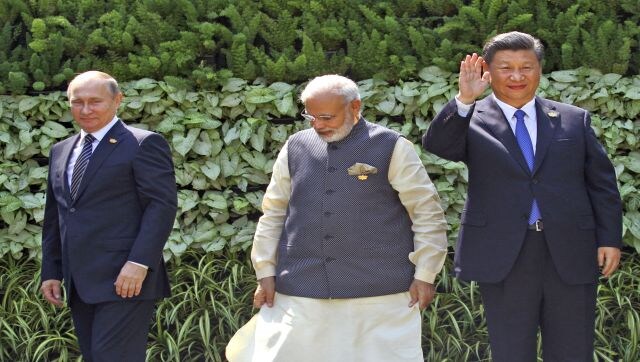Which countries are lining up to join BRICS?
Which countries are lining up to join BRICS?

Starting today (22 August), all eyes will turn to Johannesburg in South Africa, where the leaders of the BRICS countries – Brazil, Russia, India, China and South Africa – will meet for its 15th edition of its annual summit.
China’s Xi Jinping – making only his second foreign visit in the year – and Prime Minister Narendra Modi along with Brazil’s Lula da Silva and South Africa’s Cyril Ramaphosa will gather in Johannesburg and will be joined by Russia’s Vladimir Putin virtually for the three-day summit during which important issues such as expansion of the grouping, dedollarisation and the Ukraine war will be discussed.
But why are so many countries – at last count, nearly 40 countries – showing keenness to join the bloc?
Also read: BRICS Summit in South Africa: Who is invited? What to expect from the meet?
Here’s what we know so far.
Which countries want to join?
Before we delve into the matter of countries wanting to join BRICS, here’s a quick understanding of what is this bloc. It started in 2001 when economist Jim O’Neill, then at Goldman Sachs, trying to draw attention to the strong growth rates in Brazil, Russia, India and China coined the term BRIC. As Washington Post explains, it was an optimistic thesis for investors in a post-9/11 world. The four nations took the idea and ran with it. Years later, in 2010, South Africa was invited to join, adding the last letter – S – to the original acronym.
Now years later, a number of countries have expressed their desire to join the bloc. In a July press conference, South Africa’s BRICS ambassador, Anil Sooklal, confirmed that Argentina, Iran, Saudi Arabia and the United Arab Emirates were among the countries seeking to join the BRICS collective.
“Twenty-two countries have formally approached BRICS countries to become full members. There’s an equal number of countries that has been informally asking about becoming BRICS members,” Sooklal was quoted as saying in that interaction with reporters.
Saudi Arabia, the world’s second-biggest oil producer, has applied for BRICS membership, with Talmiz Ahmad, India’s former ambassador to Saudi Arabia, being quoted as saying to Associated Press, “If Saudi Arabia were to enter BRICS, it will bring extraordinary importance to this grouping.”
Similarly, Iran has said it hopes the mechanism for new membership would be decided “at the earliest.”
Ethiopia has also demonstrated a strong desire to join BRICS. On 29 June, the Ethiopian ministry of foreign affairs officially announced the submission of an application to join the consortium of developing nations within BRICS.
Bolivia, according to a Reuters report, has also expressed interest in BRICS membership and is expected to attend the summit, which will be held from 22-24 August. Its government said in July it was determined to curb dependence on the US dollar for foreign trade, instead turning to the Chinese yuan.
Earlier in July, even Algeria said it had applied for BRICS membership, as it was seeking to diversify its economy and strengthen partnership with China and other countries.

Why such keenness to join BRICS?
Today, many geopolitical experts point out that BRICS is a globally recognised brand. In fact, the member countries of BRICS have surpassed the Group of Seven (G7) in terms of gross domestic product (GDP) calculated on purchasing power parity (PPP). The five BRICS countries together contribute nearly 31.5 per cent of the global GDP, compared to 30.7 per cent by G7 countries. Moreover, BRIC countries comprise 41 per cent of the world population with 3.14 billion people. This clearly displays the strength and significance of the BRICS countries.
The BRICS is also seen as a counter to Western influence over world matters. As The Economist puts it – the BRICS members share a profound unease about American leadership, which in their view allows Washington to act without a “permission slip”.
The BRICS also has been vocal about the West’s hypocrisy and selective methods of applying international rules and norms. Through BRICS, the member countries have been able to adapt and shape the transition towards a multipolar order capable of constraining America’s room for manoeuvre, and increasing that of emerging powers.
Countries wishing to join the BRICS also see that the grouping has served as insurance against diplomatic isolation. Take for example, Russia’s Vladimir Putin. The BRICS countries haven’t disinvited Putin to the Johannesburg summit despite calls from countries to do so over Russia’s war against Ukraine.
Another reason why countries are expressing a fervent wish to join BRICS is the New Development Bank (NDB), which was set up in 2014. Since its launch, the NDB has financed almost 100 projects with $34 billion, mainly in core infrastructure sectors (water, transportation, clean energy, digital etc.) that do not typically attract conventional forms of credit.

Why BRICS wants to expand?
Within the BRICS grouping, China and Russia have expressed a strong desire to expand the membership to the bloc. Beijing seeks to raise its profile on the global stage. As one Chinese official told Financial Times, “If we expand BRICS to account for a similar portion of world GDP as the G7, then our collective voice in the world will grow stronger.”
Similarly, Russia is also now highly supportive of BRICS expansion as a way to counter its growing isolation in the West.
What’s the hold-up to expansion then?
While China and Russia have pushed for expansion and has seen some support from South Africa, India and Brazil have expressed some scepticism on the matter. Oliver Stuenkel, an associate international-relations professor at Fundacao Getulio Vargas, a university in Brazil, told the South China Morning Post there was some concern within India as to “what extent an expansion is in New Delhi’s interest”.

Stuenkel explaining India’s wariness said that the new countries would largely join to be closer to China and not to Brazil or India. Even The Economist reported the same, saying New Delhi feared that expansion would dilute its influence within the group and admitting smaller members would reduce the exclusivity of the bloc.
Additionally, the news outlet reported that New Delhi worries that BRICS would turn into a China-led bloc, with countries such as Algeria, Argentina, Egypt and Iran seeing membership as easy access to Chinese investment and financial support.
Brazil too has been cautious about an expansion; it has argued that the admission of new members should be transparent, based on a balanced approach and consensus-based decision-making.
Many geopolitical experts also opine that BRICS expansion should be gradual and based on how the new countries would contribute to mutual complementarities, strengthening and long-term functioning of the group without deepening ideological and other divisions.
With inputs from agencies
What's Your Reaction?

























































